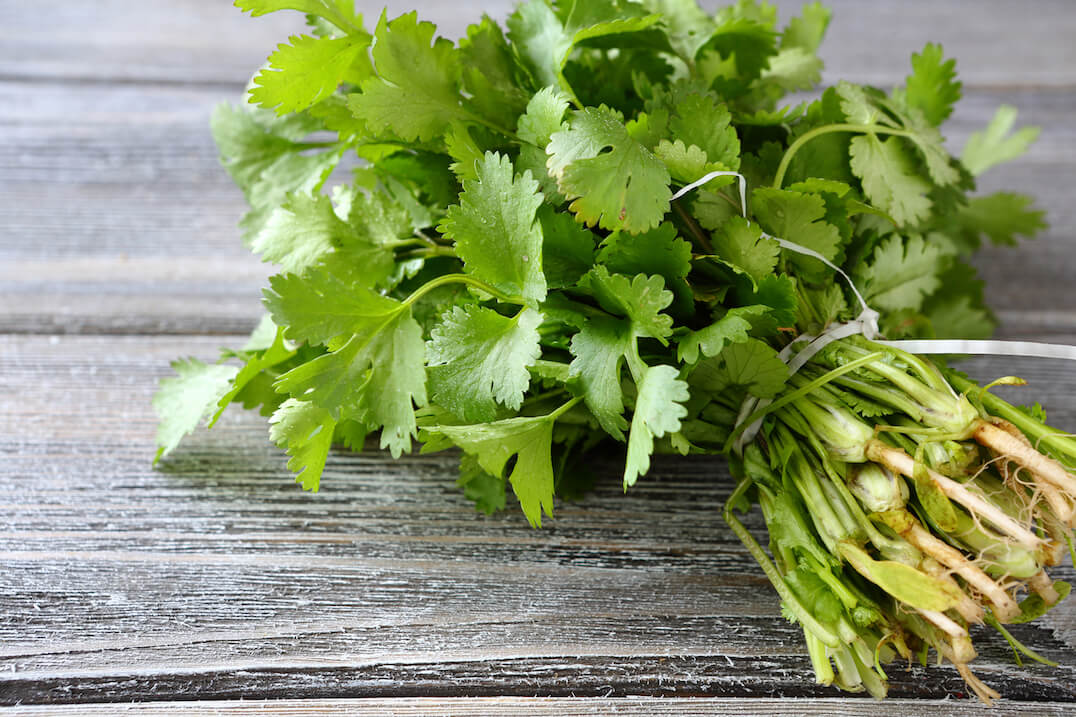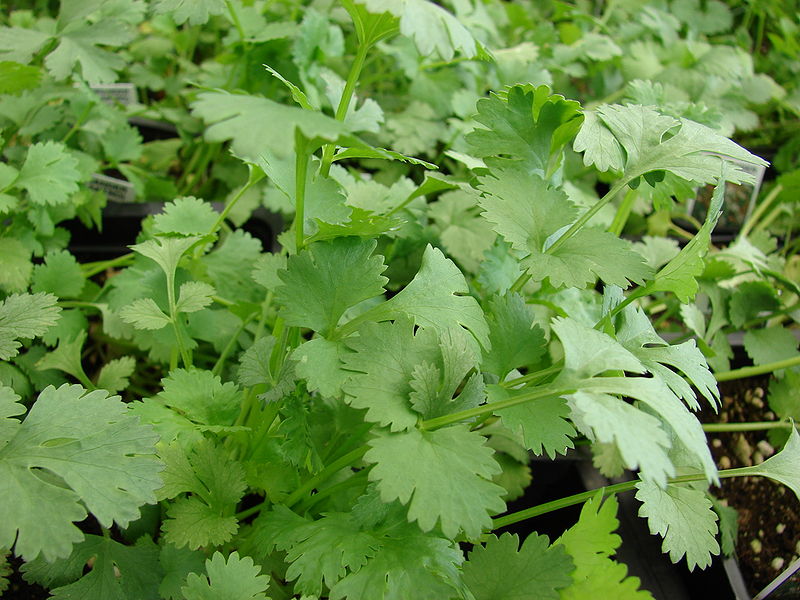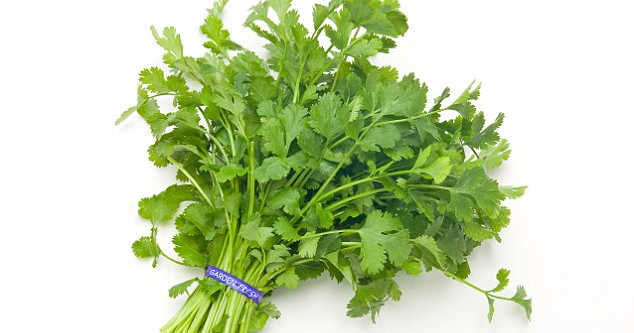Ah, the good ol' cilantro debate. It seems like there is no in-between - you either hate it or you love it.
Even the legendary Julia Child had some very strong feelings towards the herb, which comes from the same plant that gives us coriander seeds.
"Cilantro and arugula I don't like at all," Child said in a 2002 interview with Larry King. "They're both green herbs, they have kind of a dead taste to me."
When King asked if she'd ever order food that contained cilantro, Child responded with, "Never. I would pick it out if I saw it and throw it on the floor."

If you feel the same way about Cilantro, then you're not alone. Between 4 and 14% of the population hate cilantro and many often say that it leaves them with a soap-like after taste.
However, these anti-cilantro feelings are nothing new. In fact, the word "coriander" is derived from the Greek word for bedbug, because the aroma is comparable to the "smell of bug-infested bedclothes" according to the Oxford Companion to Food.
Despite all of this, there are still millions of people from all over the world that find no issue with the herb, in fact, the smell and taste are what attracts them to it. So what is it that makes some people have such an aversion to cilantro?
The answer is in a person's genes.
A genetic testing company, 23andMe conducted some research to determine why some people find cilantro unpleasant but others don't.
50,000 people took part in the DNA comparison study, and the results showed that while ones environment and culture does play a role in their hated for the herb, genes play an even bigger part.
These results are backed up by several other studies which found that most of the people who hate cilantro had the same group of olfactory-receptor genes called OR6A2.
This gene allows people to better pick up on the smell of aldehyde chemicals which happens to be found in both cilantro and soap, as well as in lotions and certain bugs.

So you can now blame your genetic make up for your hatred of cilantro, but keep in mind that you could reverse it if you tried hard enough.
Dr. Jay Gottfried, a neuroscientist at Northwestern University explained to the New York Times that if people start to associate the smell and taste of cilantro to positive experiences, then it can start to become tolerable.
"When your brain detects a potential threat, it narrows your attention," Dr. Gottfried explained. "You don't need to know that a dangerous food has a hint of asparagus and sorrel to it. You just get it away from your mouth."
Dr. Gottfried even shared how he overcame his aversion to the herb as an example.
"I didn't like cilantro to begin with," he said. "But I love food, and I ate all kinds of things, and I kept encountering it. My brain must have developed new patterns for cilantro flavor from those experiences, which included pleasure from the other flavors and the sharing with friends and family. That's how people in cilantro-eating countries experience it every day."
So if you feel like you might give cilantro another chance, think of some creative ways to include it in your food. It could make a big difference. But if that doesn't work then there's not much anyone can do for you.
Do you hate cilantro too? Let us know!

